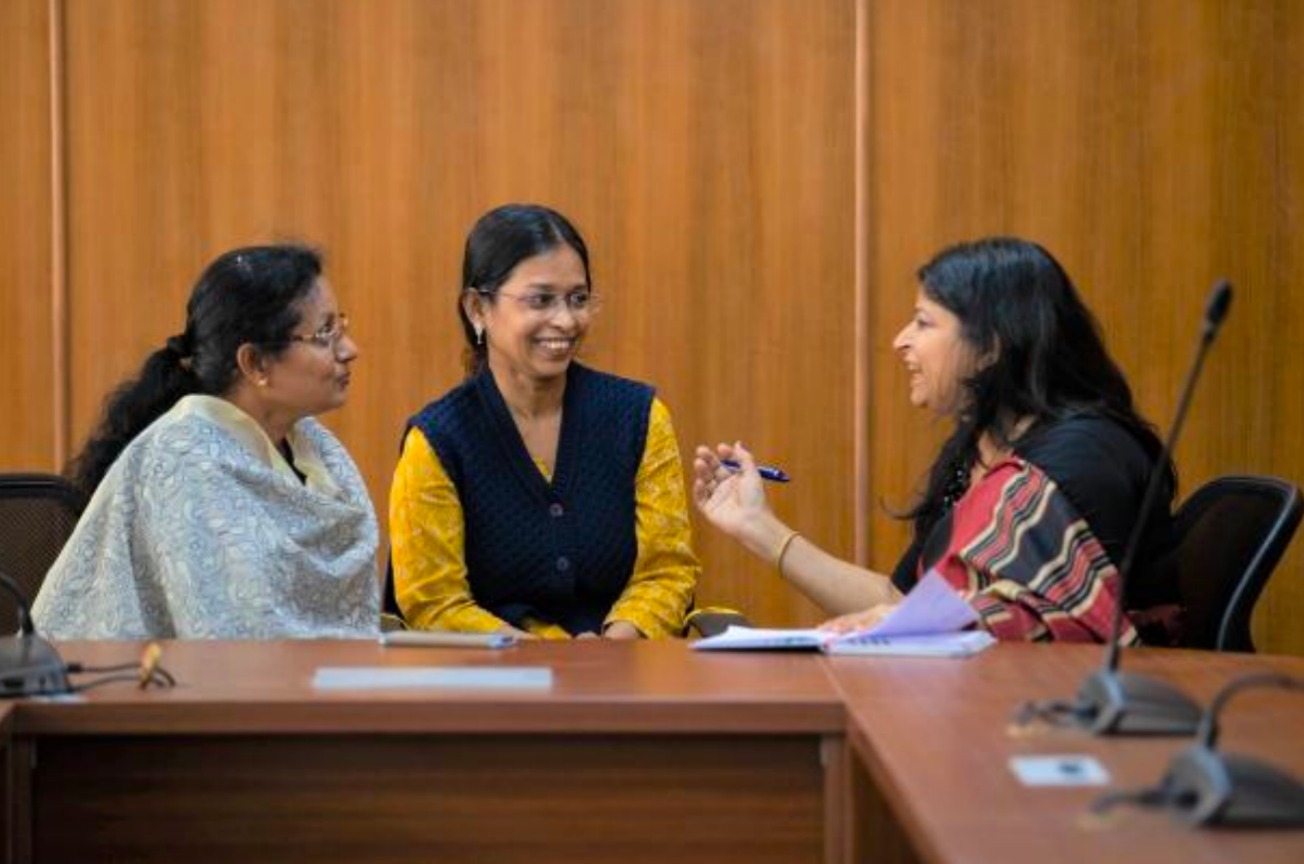by Dr. Amel Karboul
This blog is the first in a DeliverEd Initiative series by policymakers and leaders from around the world who will share their challenges in delivering reforms and reflect on the various approaches used to solve these challenges in their countries. The opinions contained in these blogs are those of the authors and do not reflect an official position of the Education Commission or its research partners.
The DeliverEd Initiative aims to build the evidence base for how governments in low- and middle-income countries can achieve their policy priorities in education using delivery approaches.
When I took office as Minister of Tourism in Tunisia in 2014, I knew from the first day I would not have much time to enact change. Our role was to end the transition phase by organizing fair, democratic, and transparent elections, and hand over to a new government as fast as we could. I also knew that the tourism sector had missed critical opportunities to implement much needed reforms, continuing with the status-quo of beach tourism during a single season, rather than adapting to emerging trends of shorter, individualized, and more cultured holidays.
As a leader responsible for delivering reforms that would significantly improve Tunisia’s tourism industry, I made three decisions early on that were critical to my year in office:
1. Build on and improve existing systems to the extent possible. As a citizen, I was often frustrated that each time a new government or minister was sworn in, they erased what those before them had done and started from scratch. Some cynics might say it is ego driving those decisions; but most leaders also have a genuine desire to leave one’s own legacy during their time in office. I made an intentional decision not to start from scratch, but instead evaluated what previous leaders before me built and used as much as possible. This improved my ability to act in service of my country and deliver on my policy agenda instead of losing valuable time. I invited previous ministers to join strategy sessions to help me understand past attempts, successes, and challenges. One minister who had made the most advanced reform efforts became part of my delivery effort’s steering committee; it was the first time since he left government that he was invited back to provide his expertise. We must learn lessons from those who have come before us and create spaces for leaders at all levels to learn from one another. This includes involving colleagues from other ministries, as well as the prime minister, and having them politically and technically sponsor the reform agenda.
2. Spend less time diagnosing challenges and more time solving them. I established an ambitious deadline of three weeks to define our strategy, objectives, and plan for reform. During this short period of time, we undertook a multi-stakeholder approach and workshops to narrow our reform focus, inviting travel agents, hotel associations, airlines, unions, and others to provide inputs. At the end of three weeks, we had a comprehensive strategy called 3+1, which included three core reforms to improve tourism in Tunisia, plus one internal reform focused on improving the way the ministry and linked agencies worked together. Combining sectoral reforms with internal reforms might be criticized as being “nothing new,” but 15 years’ worth of strategic studies illuminates how often reforms are never fully implemented and proves we don’t need a new strategy – we need to start delivering. One critical component of our approach was having a dedicated team devoted to following up on what we aimed to do and reporting progress, making sure no balls were dropped.
3. Invest in national leaders and strengthen internal capacity. A recent global mapping of delivery approaches by the DeliverEd Initiative found low-income countries were more likely to make use of external consultants or advisors and rely heavily on human resources outside of the civil service in their delivery approaches. While consultants helped us kick off the implementation process, I made clear to my team that they were the leaders and would be held accountable for delivering. During an early meeting, I recall the consultants leading presentations and conversations; I wanted to shift the paradigm, so I removed the consultants from leading the meeting. My team needed to be prepared and positioned as leaders of various projects supporting the reforms and be the ones to facilitate presentations throughout. At the end of my tenure, leaders in the ministry improved significantly in their strategic thinking and presentation skills compared to the beginning, and many of them continued to direct the projects even after I left office, creating longer-term sustainability within the ministry through a culture of distributed leadership. Investing in leadership development programs for all public servants, especially those leading on implementing reform, is critical to achieving transformation. I was one of the first ministers who had all their public servants go through a leadership development program, and I would do the same if I were in the position today. However, I caution all leaders against overestimating institutional capacity. Like many other ministries, we had capable people, but not enough staff to carry out the regular work and then take on additional projects to advance the reforms. Many technical units and departments are significantly understaffed, and while leadership development is important, it cannot take the place of building institutional capacity.
I have been reflecting on these decisions in my current role as Co-Chair of the DeliverEd High-level Advisory Group and how they relate to the ongoing research examining the use of delivery approaches to achieve education policy implementation. During my time as minister, we did not formally set up a delivery unit, but we were using delivery approaches to transform the tourism industry. These three decisions (and of course, many others!) helped me to shift the culture within the ministry towards one where public servants owned and led the reform, and where reform efforts were budgeted to last for 7 years, ensuring they were set in stone even though my time as minister was limited.
Looking back, there are several things I would repeat, and several things I would do differently if I were minister again today. I was able to leverage the fact that I had a high-profile in the media, in part because I was the first female Minister of Tourism. This helped make the reform strategy of the ministry and its delivery more attractive for government officials and citizens to engage with. For the first time, people felt what our ministry did mattered, and the profile of the ministry was more prominent than it had ever been. We were even able to use social media to connect with young people and involve them in the delivery of the reform.
I did learn some hard lessons along the way. Coming from the private sector, I underestimated the nature of politics and the scrutiny that I would face as a public official when mistakes were made. I realized that even when working towards shifting the bureaucracy’s culture in positive ways, some would simply not support you, even if they knew the reform agenda and your work was sound and achieving results. Earning trust and having a safe space for trying new ideas, making mistakes, and learning continuously throughout the process are difficult when the time horizons for a political leader are often short.
With DeliverEd, we are creating a space for current policymakers to come together and share their experiences with policy implementation and reflect on their successes as well as the hard lessons they have learned along the way. We hope this community of practice, launched first in Africa, will be expanded to other regions.

Dr. Amel Karboul is CEO of the Education Outcomes Fund for Africa and the Middle East and co-chair of the High-level Advisory Group for the DeliverEd Initiative. She is a social entrepreneur, chairwoman, author, and politician who is passionate about nurturing a new generation of responsible leaders and building bridges between the private and public sectors and civil society to solve today’s global challenges. Until February 2015, Dr. Karboul was Minister of Tourism in the Tunisian transition government. She has held leadership roles at Mercedes-Benz and DaimlerChrysler and was a senior consultant at the Boston Consulting Group (BCG) and Beratergruppe Neuwaldegg. She served as Secretary-General of the Maghreb Economic Forum (MEF). Dr. Karboul holds a master’s with honors in mechanical engineering from Karlsruhe Institute of Technology (KIT) in Germany and a doctorate in coaching and mentoring from Oxford Brookes University in the United Kingdom. She has served on the advisory boards of CLP, WTFL, and GBC-Ed. Dr. Karboul published her book Coffin Corner outlining a new leadership culture suited to the complexity and dynamics of the 21st century. She is a true advocate for believing that quality education is possible for everyone.



